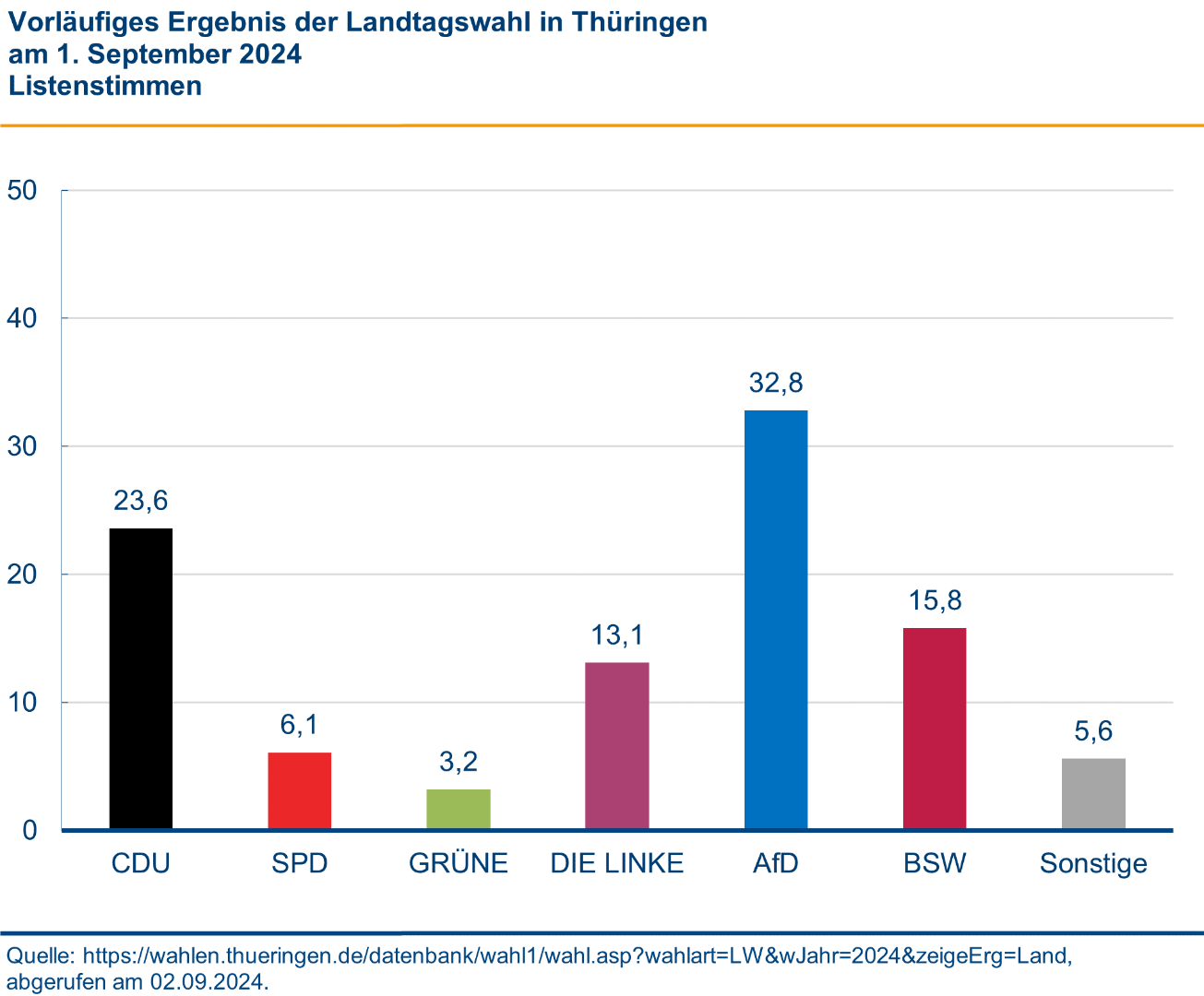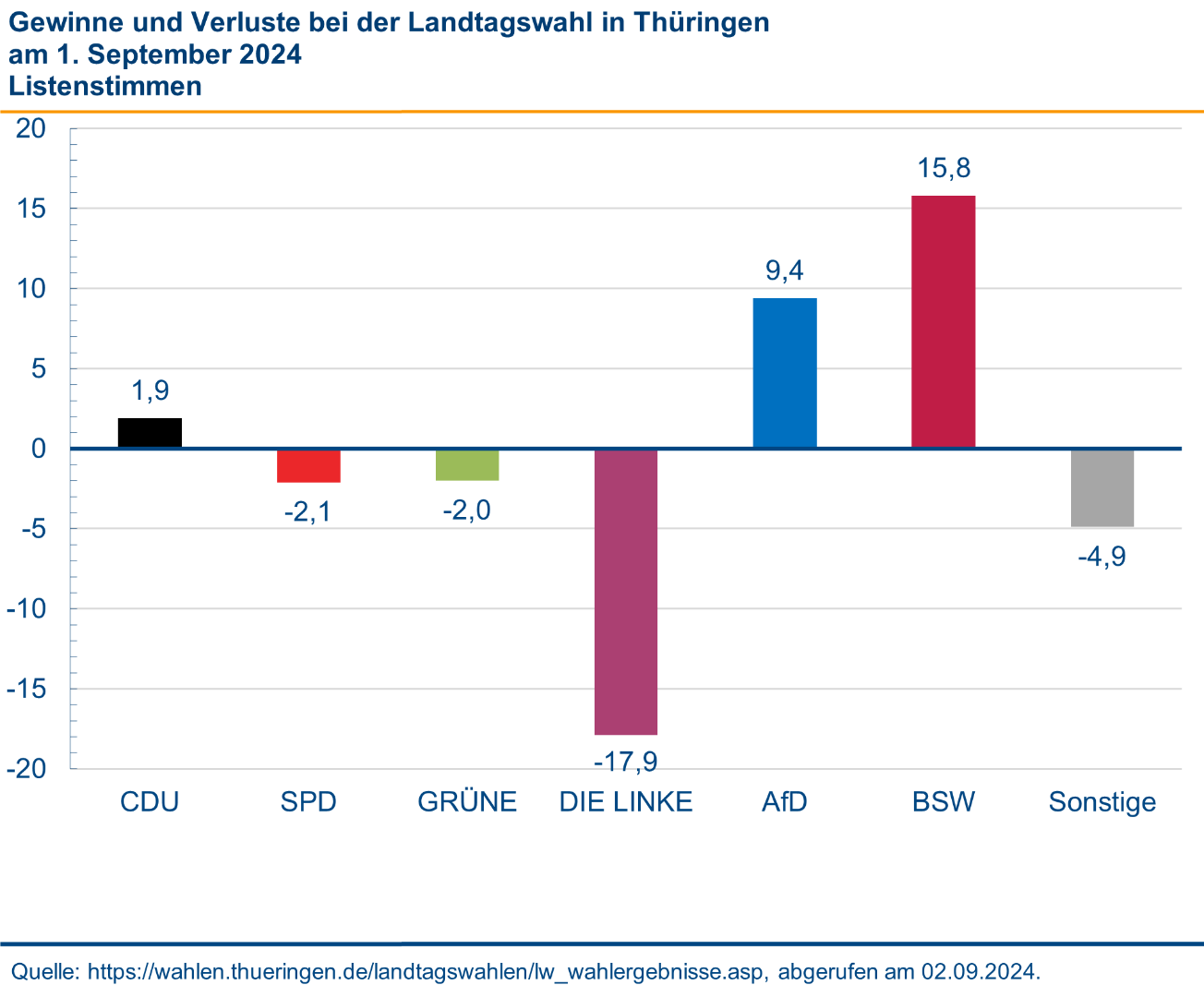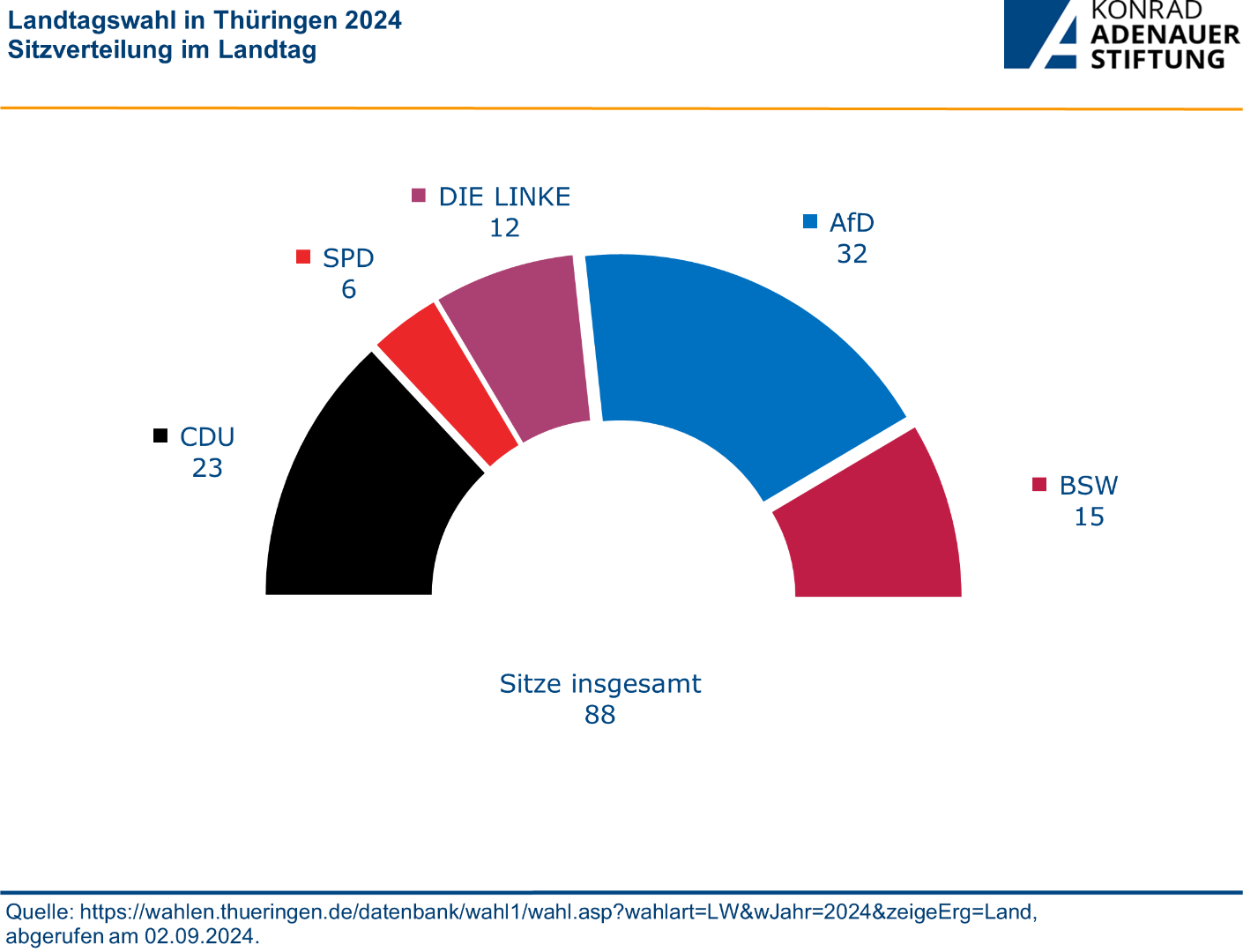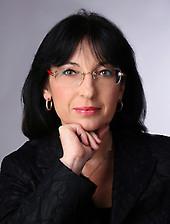The elections in Thuringia and Saxony continue the trend of the European elections: losses for the “traffic light parties” with continuing high levels of dissatisfaction with the federal government, strengthening of the political fringes and extensive stagnation for the CDU. In Thuringia, the Left Party's split and decline in importance was cushioned by the reputation of Minister President Bodo Ramelow.
The AfD became the strongest party in a federal state for the first time. Two trends have been stable among AfD supporters for some time: a low willingness to change parties and an immunisation towards political communication beyond the AfD. AfD and BSW supporters are united in their dissatisfaction, with AfD supporters being even more dissatisfied than BSW supporters. And dissatisfaction is not limited to the political sphere. Life satisfaction, satisfaction with democracy and trust in other people are low in both groups of supporters. The result reflects the increasing polarisation of society.
The election analysis for the Thuringia state election can be found here in German.
All graphs and tables on which the election analysis is based can be found in the appendix.
Please note, to date the study is only available in German.







